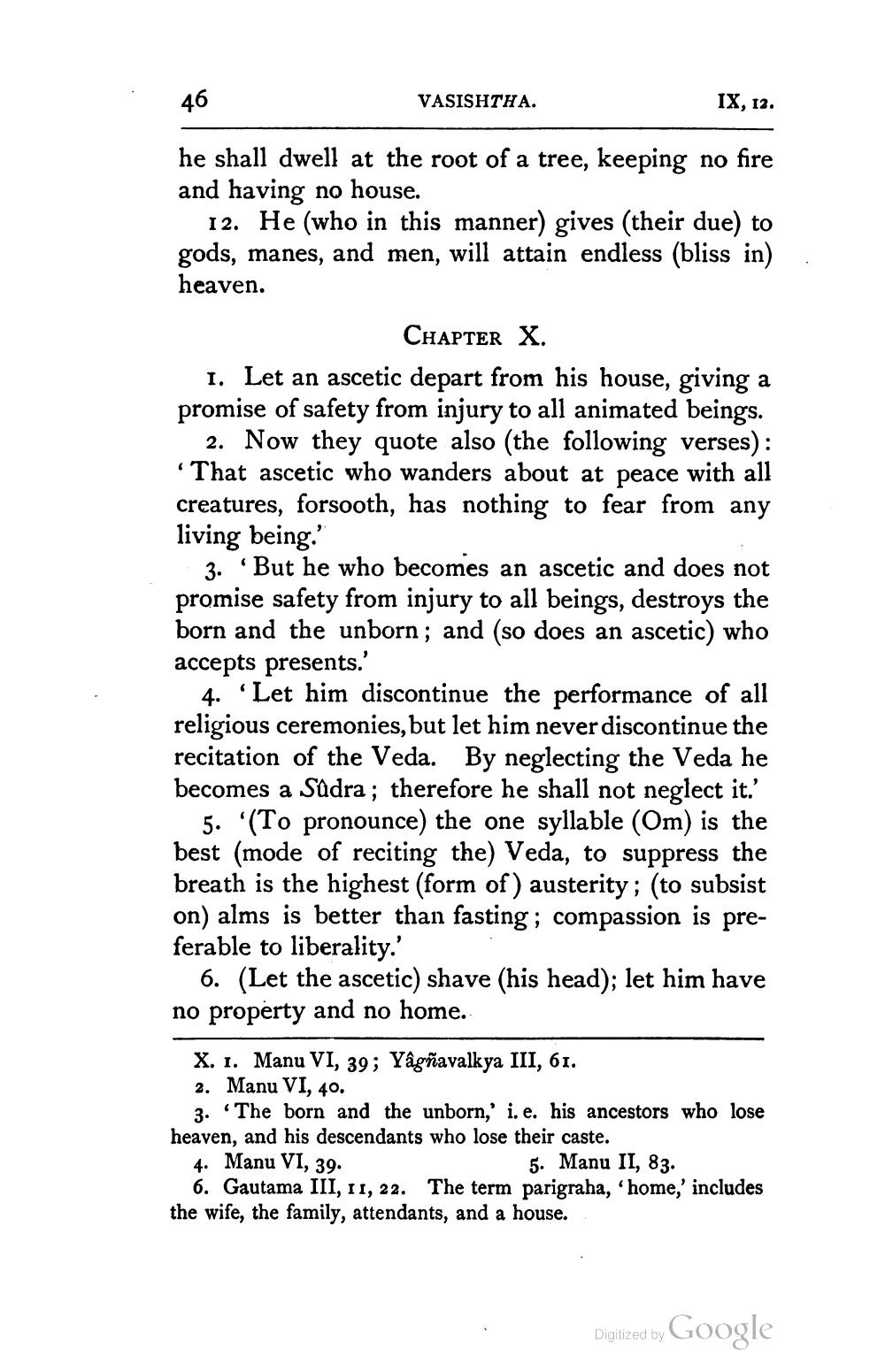________________
VASISHTHA.
IX, 12.
he shall dwell at the root of a tree, keeping no fire and having no house.
12. He (who in this manner) gives (their due) to gods, manes, and men, will attain endless (bliss in). heaven.
CHAPTER X. 1. Let an ascetic depart from his house, giving a promise of safety from injury to all animated beings.
2. Now they quote also (the following verses): "That ascetic who wanders about at peace with all creatures, forsooth, has nothing to fear from any living being."
3. 'But he who becomes an ascetic and does not promise safety from injury to all beings, destroys the born and the unborn; and (so does an ascetic) who accepts presents.'
4. 'Let him discontinue the performance of all religious ceremonies, but let him never discontinue the recitation of the Veda. By neglecting the Veda he becomes a Sadra; therefore he shall not neglect it.'
5. (To pronounce) the one syllable (Om) is the best (mode of reciting the) Veda, to suppress the breath is the highest (form of) austerity; (to subsist on) alms is better than fasting ; compassion is preferable to liberality.'
6. (Let the ascetic) shave (his head); let him have no property and no home.
X. 1. Manu VI, 39; Yâgñavalkya III, 61. 2. Manu VI, 40.
3. The born and the unborn,' i.e. his ancestors who lose heaven, and his descendants who lose their caste. 4. Manu VI, 39.
5. Manu II, 83. 6. Gautama III, 11, 22. The term parigraha, 'home,' includes the wife, the family, attendants, and a house.
Digitized by Google




